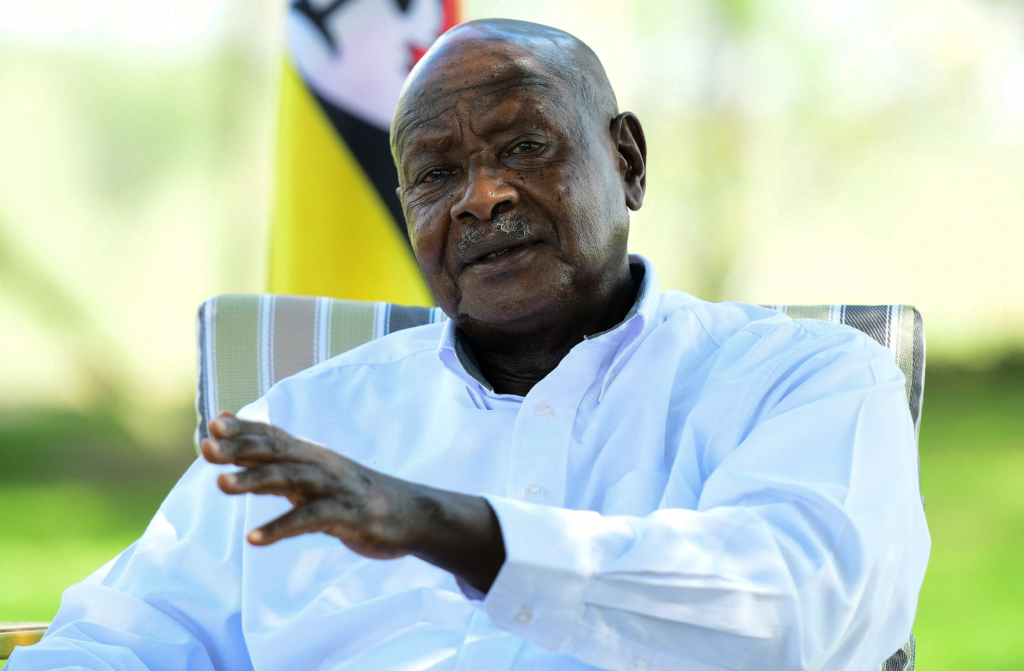Will any Ugandan politician stand up for LGBTQ people?
Joto La Jiwe is a Ugandan correspondent for the African…
As Uganda prepares for next year’s elections, candidates are avoiding LGBTQ issues
“The AHA remains in force, and the needs of LGBTQ Ugandans remain excluded from the gains politicians are so eager to celebrate” — Ugandan sexual minorities activist Frank Mugisha

COMMENTARY
The campaigns for the 2026 elections in Uganda are under way and the manifestoes are out, but none of the most prominent presidential candidates have provisions that address the tyranny that minority Ugandans are subjected to, especially LGBTQ persons under the Anti-Homosexuality Act (AHA) 2023.
President Museveni and his campaign team has conveniently avoided the ‘homosexuality card,’ which used to be their favorite political scapegoat, after realizing that it no longer carries much weight on a political weighing scale.
A leading LGBTQI+ rights activist Frank Mugisha says campaigning against homosexuality featured prominently in past elections but not this time around.
“Take the past political elections, where LGBTQ issues have often been weaponized as a scapegoat to distract from pressing concerns affecting Ugandans. However, there are signs that this ‘homosexuality card’ no longer sways public opinion as it once did. More Ugandans are now focused on tangible issues such as survival, dignity, and economic stability. One has to ask: will any candidate stand up during the campaigns for marginalised communities, not just for LGBTQ human rights, but everyone living on the margins of our society?” Mugisha says.
Mugisha’s observation has been proven right not just by the fact that the political camps are no longer using homosexuality as a campaign issue but also by the fact that those who have tried to play the card have come under immense criticism from Ugandans.
A recent example is the Archbishop of the Church of Uganda Steven Kaziimba Mugalu, who was blasted for being quick to speak out against issues related to homosexuality and keeping quiet in the face of gross human rights abuses in his own country Uganda. Mugalu recently came under fire for opposing the appointment of Cherry Vann as the Archbishop of Wales and the Sarah Mullay as the next Archbishop of Canterbury, accusing them of being pro LGBTQI+ rights.

There is a huge fear that if Mr. Museveni is re-elected, it will either be more of the same or worse for LGBTQI+ persons and their allies in Uganda.
On the other side, the leading opposition camp under former musician Bobi Wine (Robert Kyagulanyi) has fallen short of addressing the LGBTQI+ rights issue in his campaigns and manifesto. He has himself been accused of being a homosexual by his political opponents. Unlike the ruling party camp which focused on ‘fighting homosexuality,’ Wine’s comments on homosexuality have always been denying accusations that he is gay and accusing the state of using homosexuality to divert attention from the high rate of corruption and human rights violations perpetrated by the state security operatives.
Wine has never openly condemned the AHA nor promise to annul it if he becomes president. He is however more alive to human rights issues in general compared to the incumbent Museveni who is surrounded and funded by anti-rights individuals and groups.
Mugisha says politicians across all political parties must demonstrate the courage to fight for every Ugandan, ensuring true equality and justice.
“First, they must move beyond broad statements. They must condemn the Anti-Homosexuality Act (AHA) and commit to its repeal. They must explicitly include key populations in health, social, and development policies, in line with the constitution’s promise of equality for all. They must commit to legal reforms that protect every citizen from discrimination and violence, regardless of gender identity, sexual orientation, or profession. The AHA is not just a threat to the LGBTQ community; it is a threat to Uganda’s public health, economic stability, and moral fabric,” Mugisha says.
The Anti-Homosexuality Act (AHA) has far-reaching consequences that extend well beyond questions of morality or culture. It affects access to healthcare, weakens community trust, drives people underground, and threatens Uganda’s commitments to human rights and social justice.
While there have been recent calls to integrate LGBTQ-inclusive services and guidance issued through circulars, these measures are not enough.
So, as the nation looks toward 2026, it is essential for public leaders and policymakers to address these realities with empathy and evidence-based solutions.




